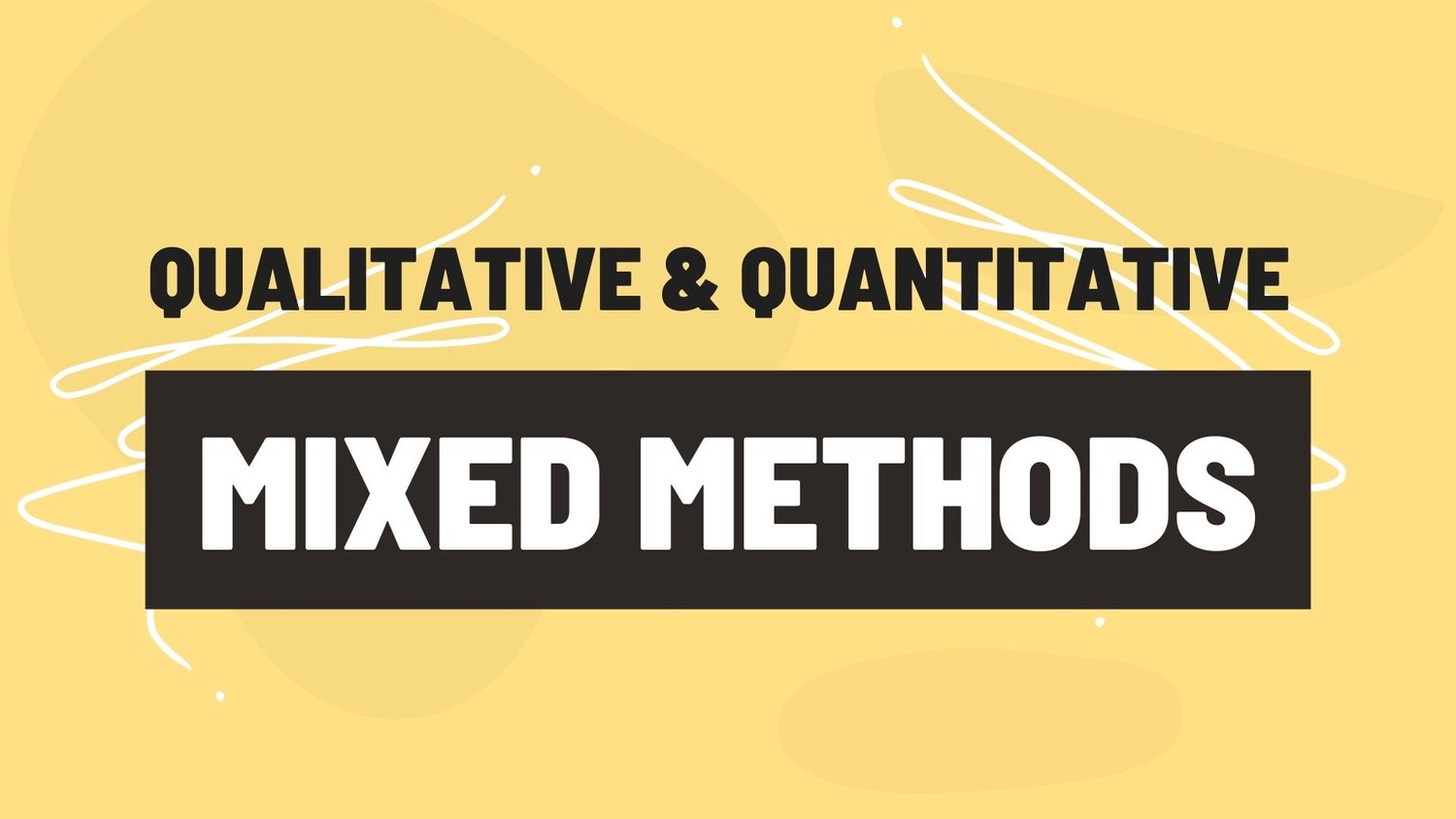Benefits of Mixed Methods Research
Mixed methods research is a powerful approach that combines qualitative and quantitative methods to provide a comprehensive understanding of a research topic. By integrating both approaches, researchers can overcome the limitations of using a single method and gain deeper insights into their subject matter. In this article, we will explore the numerous benefits of mixed methods research and how it can enhance the quality of your research.
Enhanced Validity and Reliability
Mixed methods research offers improved validity and reliability compared to using a single method. The combination of qualitative and quantitative data allows researchers to triangulate their findings, strengthening the overall validity of the study. By corroborating the results obtained from different methods, researchers can ensure that their conclusions are robust and trustworthy.
Comprehensive Data Collection
One of the key advantages of mixed methods research is its ability to collect comprehensive data. Qualitative methods, such as interviews and observations, provide rich and in-depth insights into participants’ experiences, motivations, and behaviors. On the other hand, quantitative methods, such as surveys and experiments, allow researchers to collect large-scale data that can be analyzed statistically. By integrating both approaches, researchers can gather a wide range of data, providing a more complete picture of the research topic.
Increased Understanding and Explanation
Mixed methods research enables researchers to gain a deeper understanding of their research topic. Qualitative data helps uncover the underlying reasons, motivations, and contexts behind participants’ behaviors, while quantitative data provides statistical evidence and patterns. By combining these two types of data, researchers can not only identify trends but also explain why those trends occur. This comprehensive understanding allows for more nuanced and insightful interpretations of research findings.
Improved Research Design
Mixed methods research allows for a more robust and well-rounded research design. By integrating qualitative and quantitative methods, researchers can address research questions from multiple angles, ensuring a comprehensive exploration of the topic. This approach helps overcome the limitations of using a single method and provides a more holistic view of the research problem. Additionally, mixed methods research allows researchers to capitalize on the strengths of both qualitative and quantitative methods, leading to a more impactful study.
Enhanced Practical Applications
The integration of qualitative and quantitative data in mixed methods research enhances its practical applications. By combining different types of data, researchers can generate findings that are not only theoretically grounded but also applicable in real-world contexts. This is particularly valuable in fields such as education, healthcare, and social sciences, where research findings are often used to inform policy and practice. Mixed methods research ensures that the research outcomes are both academically rigorous and practically relevant.

Mixed methods research offers a multitude of benefits, including enhanced validity and reliability, comprehensive data collection, increased understanding and explanation, improved research design, and enhanced practical applications. By integrating qualitative and quantitative methods, researchers can overcome the limitations of using a single method and gain a more holistic understanding of their research topic. Incorporating mixed methods research into your study can significantly enhance the quality and impact of your research outcomes.
Frequently Asked Questions about the Benefits of Mixed Methods Research
1. What is mixed methods research?
Mixed methods research is an approach that combines qualitative and quantitative research methods to gain a comprehensive understanding of a research problem.
2. What are the benefits of using mixed-methods research?
The benefits of mixed methods research include:
Enhanced validity and reliability of findings.
Ability to explore complex research questions more thoroughly.
Opportunity to triangulate data from different sources.
Increased breadth and depth of understanding.
Ability to capture both subjective experiences and objective measurements.
3. How does mixed methods research improve validity and reliability?
Mixed methods research improves validity and reliability by using multiple data sources and research methods, which allows for cross-validation of findings and reduces the risk of bias.
4. Can mixed methods research be used in any field of study?
Yes, mixed methods research can be applied to various fields of study, including social sciences, healthcare, education, business, and more.
5. How does mixed methods research address the limitations of qualitative and quantitative research?
Mixed methods research combines the strengths of qualitative and quantitative research, compensating for their limitations. It allows researchers to obtain rich qualitative data while also providing statistical analysis and generalizability.
6. What are some common data collection methods used in mixed methods research?
Common data collection methods in mixed methods research include surveys, interviews, observations, focus groups, experiments, and document analysis.
7. Can mixed methods research save time and resources?
Yes, mixed methods research can save time and resources by maximizing the use of existing data, reducing the need for separate qualitative and quantitative studies, and providing a more comprehensive understanding of the research problem.
8. How can mixed methods research contribute to evidence-based practice?
Mixed methods research can contribute to evidence-based practice by generating both qualitative and quantitative evidence, allowing practitioners to make informed decisions based on a broader range of data.
9. Are there any challenges associated with conducting mixed-methods research?
Yes, some challenges of mixed methods research include the need for expertise in both qualitative and quantitative methods, integration of different data types, and potential complexities in data analysis.
10. Where can I learn more about mixed methods research?
You can learn more about mixed methods research through books, academic journals, online courses, and attending research conferences that focus on mixed methods approaches.




